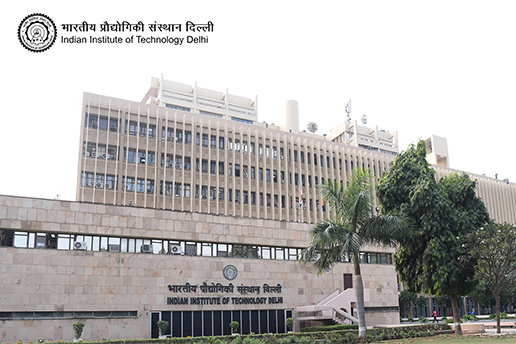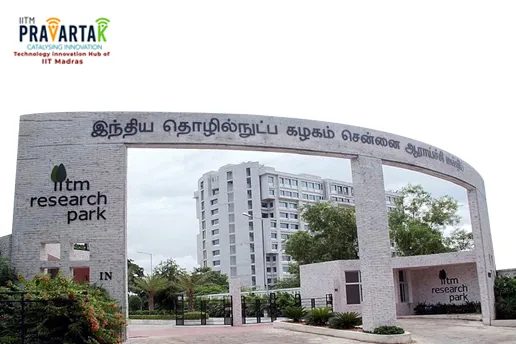B.Tech Vs BE: What is the Difference Between the Two Degrees?
Table of Contents

In India, there are two undergraduate degree programs available for engineering. These are B.Tech (Bachelor of Technology) and B.E (Bachelor of Engineering). So, choosing between these two becomes confusing for the students. Though both degrees focus on engineering, they have differences in curriculum structure, industry orientation, and practical exposure. Thus, aspiring students must understand B.Tech and B.E differences before choosing any program.
This article will provide in-depth guidance about B.Tech and B.E. differences and give a glimpse into the top colleges that are offering these programs.

*apollouniversity.edu.in
Understanding Basic B.Tech and B.E Difference
This section will cover the term-wise B.Tech and B.E difference –
What is B.Tech?
B.Tech, or Bachelor of Technology, is an undergraduate degree that focuses on practical and real-world engineering applications. Thus, the course is designed to prepare students for industry-specific roles with a hands-on learning approach.
The core subjects of B.Tech are –
- Computer Programming
- Artificial Intelligence And Data Science
- Engineering Mechanics And Materials
- Electrical And Electronics
- Modern Technologies And Applications
- Industrial Training And Internships
What is B.E?
B.E or Bachelor of Engineering is an undergraduate degree that basically focuses on fundamental engineering principles and theoretical concepts. It prioritizes the mathematical and scientific aspects of engineering. Also, it provides strong concepts from several technical subjects.
The core subjects of B.E are –
- Engineering Mathematics
- Programming And Algorithms
- Structural And Mechanical Analysis
- Physics And Chemistry
- Circuit Design And Electronics
Core Factors for Understanding B.Tech and B.E Difference
Here are other core B.Tech and B.E difference –
- Curriculum Orientation
B.Tech programs encompass more practical approaches to tools and technologies associated with engineering applications. In contrast, B.E programs provide in-depth exposure to theoretical approaches to the scientific concepts related to engineering practices.
- Course Structure
The syllabus of the B.Tech course is structured with the practical applications of engineering principles. On the other hand, the B.E course follows a traditional approach that focuses on the scientific theories behind the core engineering principles.
- Specialization
There is a significant difference between B.Tech and B.E degree in terms of their specializations. The B.Tech courses tend to offer more technology-driven specializations. At the same time, a B.E degree focuses on classical engineering streams.
- Teaching Methodology
B.Tech courses prefer hands-on training and projects for understanding theoretical concepts well. However, B.E courses include orthodox teaching methods. That means they focus on learning theoretical concepts.

*saitm.ac.in
- Industry Vs Research-Oriented
B.Tech programs include exposure to industrial training. These become essential for students who want to apply their skills and knowledge for real-world problem-solving as early as possible.
In contrast, B.E incorporates a research-oriented agenda. Thus, this course is ideal for students who want to pursue research-oriented post-graduate education.
- Eligibility Criteria
Individuals who wish to enroll in a B.Tech course must fulfill the minimum eligibility criteria that require a minimum of 50% marks in 12th standard with Physics and Chemistry.
On the other hand, if a student wants to enroll in a B.E course, they must have 50% marks in Physics and Chemistry each in 12th grade. Thus, eligibility criteria become a major B.Tech and B.E difference.
However, both degrees require an appearance for JEE (Joint Entrance Examinations) Main, JEE Advanced, or state-level entrance exams. Moreover, some organizations may have specific entrance tests.
- Professional Possibilities
Both degrees can provide numerous opportunities in the professional field. However, there is a major difference between B.Tech and B.E regarding this factor.
Candidates with a B.Tech degree become eligible for roles that require more practical skills in technology, like industry-based business segments. Candidates with B.E degrees become more successful in roles that require in-depth theoretical knowledge, such as academic research and development.
B.Tech and B.E Difference: An In-Depth Exposure to Specializations
Common B.Tech Specializations
- Civil Engineering: Civil engineering provides specialized knowledge on infrastructure development and construction techniques.
- Mechanical Engineering: Being specialized in mechanical applications, it helps to build skills in mechanical systems, manufacturing processes, and machinery.
- Computer Science and Engineering: This specialization is associated with designing computer systems and software development.
- Electronics and Communication Engineering: This stream includes everything about electronic circuits and communication systems.
- Electrical and Electronics Engineering: It deals with electronic devices, electricity, and automated control systems.
- Electronics Computer Engineering: This branch provides diverse knowledge of electronics and computer engineering.
- Automobile Engineering: Automobile engineering includes vehicle design, manufacturing, and the engineering process.
- Aeronautical Engineering: This branch provides in-depth knowledge and helps build skills in aircraft design, aerodynamics, and navigation systems.
- Biotechnology: This delivers knowledge about applying biology to technology and finding solutions with innovation.
Common B.E Specializations
- Civil Engineering: This discipline focuses on designing, constructing, and maintaining the natural landscape and building environment.
- Mechanical Engineering: It prioritizes machinery, mechanics, and their manufacturing process.
- Computer Engineering: It assembles the concepts and principles from computer science and electrical engineering.
- Chemical Engineering: This includes studies about chemicals, material interactions, and processes.
- Biomedical Engineering: It combines medicine, biology, and engineering concepts to develop medical technologies and solutions.
- Aerospace Engineering: This specialization involves developing and designing aircraft, spacecraft, and related systems.
- Environmental Engineering: It addresses environment-oriented challenges with engineering solutions.
- Electrical Engineering: Being the stream related to electrical concepts, it delivers the topic associated with electricity, power systems, and electronics.
B.Tech and B.E Difference: An In-Depth Practical Exposure
Another big difference between B.Tech and B.E degree is their practical exposure. Here is an in-depth explanation regarding this –
- Lab Work
B.Tech students gain hands-on experience with real-world engineering problems by working in modern lab setups and apparatuses. It helps them understand the theoretical implementations of the concepts and their real-world challenges, and get into the depths of the concepts.
As B.E courses focus on core engineering principles, their lab works are often limited. Most of their lab work is related to research projects and experiments. For instance, their lab work focuses mostly on reporting, troubleshooting, data collection and analysis, and creating designs and prototypes.
- Technical Workshops And Hands-On Learning
Technical workshops play a vital role in bridging the gap between practical and theoretical knowledge for the B.Tech students. These workshops provide hands-on experience with the sophisticated technologies that help foster an in-depth understanding of engineering methodologies.
On the other hand, the B.E course curriculum focuses on academic research and theoretical projects.
- Internships And Industrial Training
B.Tech programs mandate industrial training and internships for final-year students. For B.Tech students, the degree remains unfinished without this industrial exposure, which they get through internships with various companies. These internships teach them how to apply their skills in real-world scenarios.
Whereas B.E programs don’t have any strict industrial training requirements. Thus, B.E students can choose research-based projects instead.
So, it becomes a major B.Tech and B.E Difference in terms of industrial training and internships.
B.Tech and B.E Difference: Career Opportunities and Industry Demand
The B.Tech and B.E difference is also significant when it comes to career opportunities and industry demand. Both degrees encompass several job opportunities. A recent study from Statista has shown that the employability of engineering graduates in India has risen by 72%, which is better than in 2024. However, an individual’s preference will place them in the best alignment with the specific positions or sectors.
Top job roles related to B.Tech programs have high demand. Specifically, these job roles belong to industries such as software development, information technology (IT), and biotechnology. Software engineering and data science are highly demanding job roles for B.Tech candidates.
However, the roles related to B.E programs are more related to traditional engineering disciplines like electrical, civil, and mechanical engineering. Pursuing careers in mechanical and civil engineering will B.E fruitful for B.E candidates.
Here is a salary overview for the top job roles for B.Tech and B.E students –
| Specialization | Average Salary (INR per annum) |
|---|---|
| Computer Science & IT | ₹6-12 LPA |
| Electrical & Electronics | ₹5-9 LPA |
| Civil Engineering | ₹3-7 LPA |
| Mechanical Engineering | ₹4-8 LPA |
Moreover, students can pursue a more professional degree like MBA (Masters of Business Application) after B.Tech or B.E, in the associated technical and analytics field.
B.Tech vs B.E: Which is Better for a Career?
The answer to this question will depend upon an individual’s career objectives, learning preferences, and interests. B.Tech will B.E suitable for those who want –
- Hands-on experience in technologies, related tools, and industry applications.
- Job in the corporate sector or tech industry.
So, learning about the Top IT Courses for Professionals will help the B.Tech graduates choose the right career.
On the other hand, B.E will B.E best for the candidates who want –
- A career in academics, research, and development.
- Pursue a higher education such as MS (Master of Science), Ph.D. (Doctor of Philosophy), M.Tech (Master of Technology), or other research-oriented courses.
B.Tech and B.E Difference: A Tabular Format
So, here are the key highlights about the B.Tech and B.E difference–
| Factors | B.Tech Degree | B.E Degree |
|---|---|---|
| Type | B.Tech is a skill-oriented program that mainly focuses on practical approaches. | B.E is a data-oriented program that typically focuses on theoretical approaches. |
| Eligibility | The eligibility criteria for B.Tech is 12th grade with 50% marks atleast. Also, the students must have Physics and Chemistry as compulsory subjects. | Eligibility criteria for this degree is almost the same. However, some universities might ask for minimum 50% marks in both Physics and Chemistry. |
| Entrance exams | It requires qualifying on JEE or state-level entrance exams. Some private universities accept other entrance exams. | The entrance exam requirements are the same for the B.E degree. However, some private institutions have their own admission tests or quotas. |
| Syllabus updates | The syllabus of B.Tech is frequently updated to become aligned with the latest technological advancements. These include AI, ML, IoT, and automation in the engineering fields. | However, the syllabus of B.E. includes updates in a less frequent fashion. Actually, this program prioritizes well- established concepts. The ideas cover, in particular, analytical and theoretical domains such as civil and mechanical engineering. |
| Internships | In B.Tech., courses like internships, industrial training, and visits are mandatory. These deliver real-life knowledge and experience to the students. | Internships and industrial training are not mandatory for B.E. But universities/colleges encourage students to take these curricula as they are helpful for career development. |
| Learning approach | B.Tech includes a learning approach with practical problem solving. | B.E. has a traditional learning approach that focuses on assignments, lectures, and theoretical exams. |
| Admission scope | The admission for B.Tech happens through JEE scores, management quota, and institutional exams. Also, in some cases, direct admission opportunities are available for the diploma holders. | B.E admissions occur through JEE scores, institutional tests, or state-level exams. Also, management quota is available in some private colleges. However, there is no such direct admission facility available for diploma holders. |
| Future scope | The career opportunities related to B.Tech are more focused on technical roles. These require hands-on expertise in fields like IT, biotech, and construction. | Though practical roles are available, B.E becomes perfect for roles like research, theoretical works, or academics. |
| Salary range (India) | The average salary for a B.Tech candidate ranges between ₹6 and 12 LPA. The salaries become higher for tech roles like data science and software development. | The average salary for a B.E. candidate ranges between ₹4-8 LPA, depending upon the discipline. |
Some Top Colleges in India for B.Tech and B.E Programs
Though there are major difference between tech and B.E degree, these colleges are suitable for both programs –
- IITs (Indian Institutes of Technology): IIT Bombay, IIT Madras, IIT Delhi, IIT Kanpur, and IIT Kharagpur.
Admission: JEE Advanced
- NITs (National Institutes of Technology): NIT Surathkal, NIT Calicut, NIT Warangal, and NIT Trichy
Admission: JEE Main
- Other institutes:
| Name | Admission |
|---|---|
| Vellore Institute of Technology, Tamil Nadu | VITEEE |
| Indian Institute of Engineering Science and Technology, West Bengal | JEE Main |
| Kalinga Institute of Technology | KIITEE |
| Chandigarh University, Punjab | CUCET |
| Amrita Vishwa Vidyapeetham, Tamil Nadu | AEEE/JEE |
The Next Step
After completing their B.Tech or B.E, they might pursue an MBA course like Executive MBA Dayanand Sagar University that will provide good exposure to the dynamic business world of the student. The course offer –
- Progressive curriculum
- Guidance from subject matter experts and industry leaders
- Flexible online classes
- Hands-on experience with capstone projects
Conclusion
These are the fundamental differences between B.Tech and B.E degree. Both are excellent for pursuing an engineering degree, but they have different approaches to learning. The best choice depends upon the individual’s career goals.
Frequently Asked Questions
What is the difference between B.E and B.Tech?
B.Tech and B.E differ in their curriculum, learning approach, practical scope, and career prospects.
Which is better, B.E or B.Tech?
It depends upon an individual’s career preference and goals.
B.Tech or B.E, which has a better scope?
Both degrees have equal value. However, regarding career prospects, B.Tech has better scope than B.E.
Recent Blogs
It seems we can't find what you're looking for.















